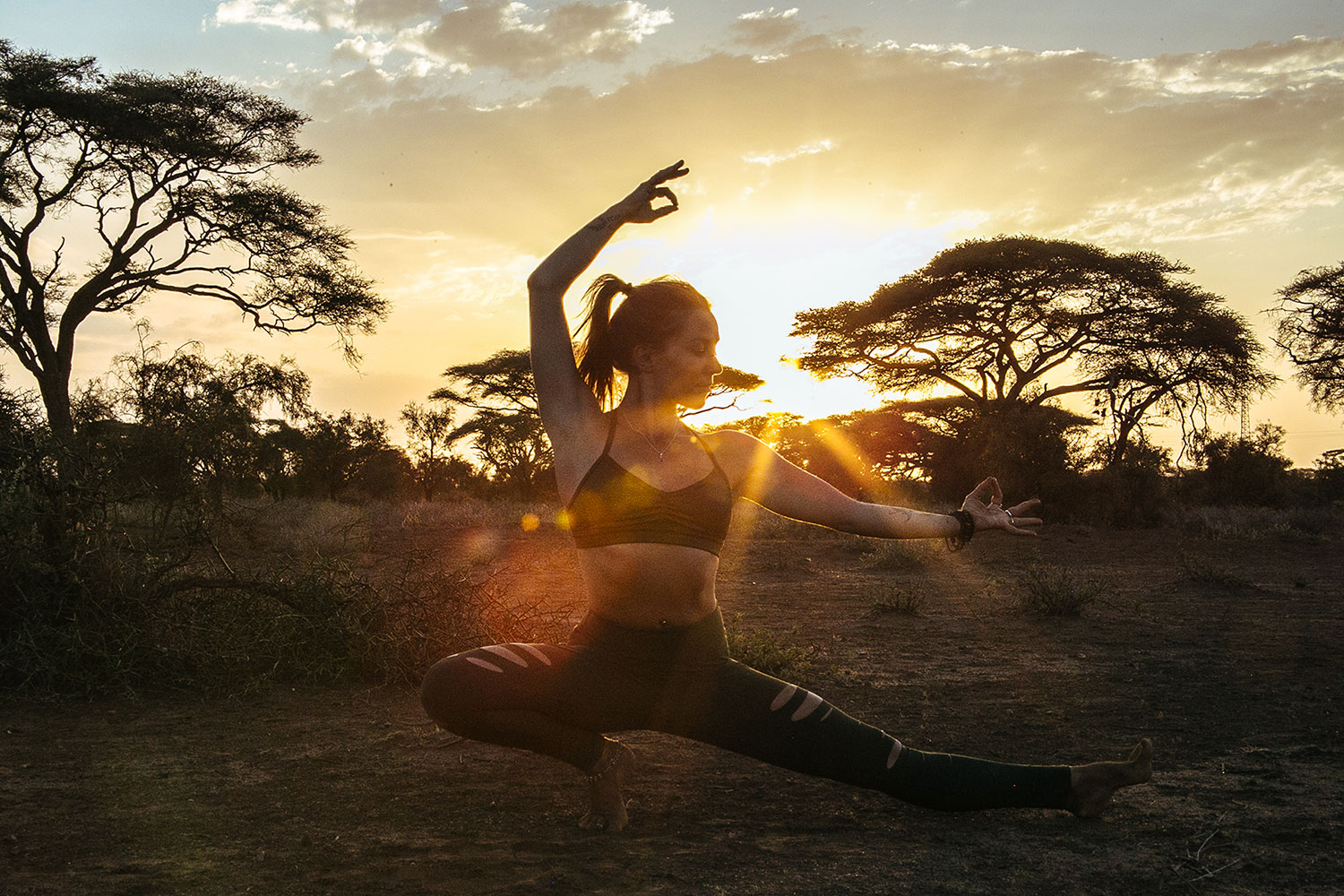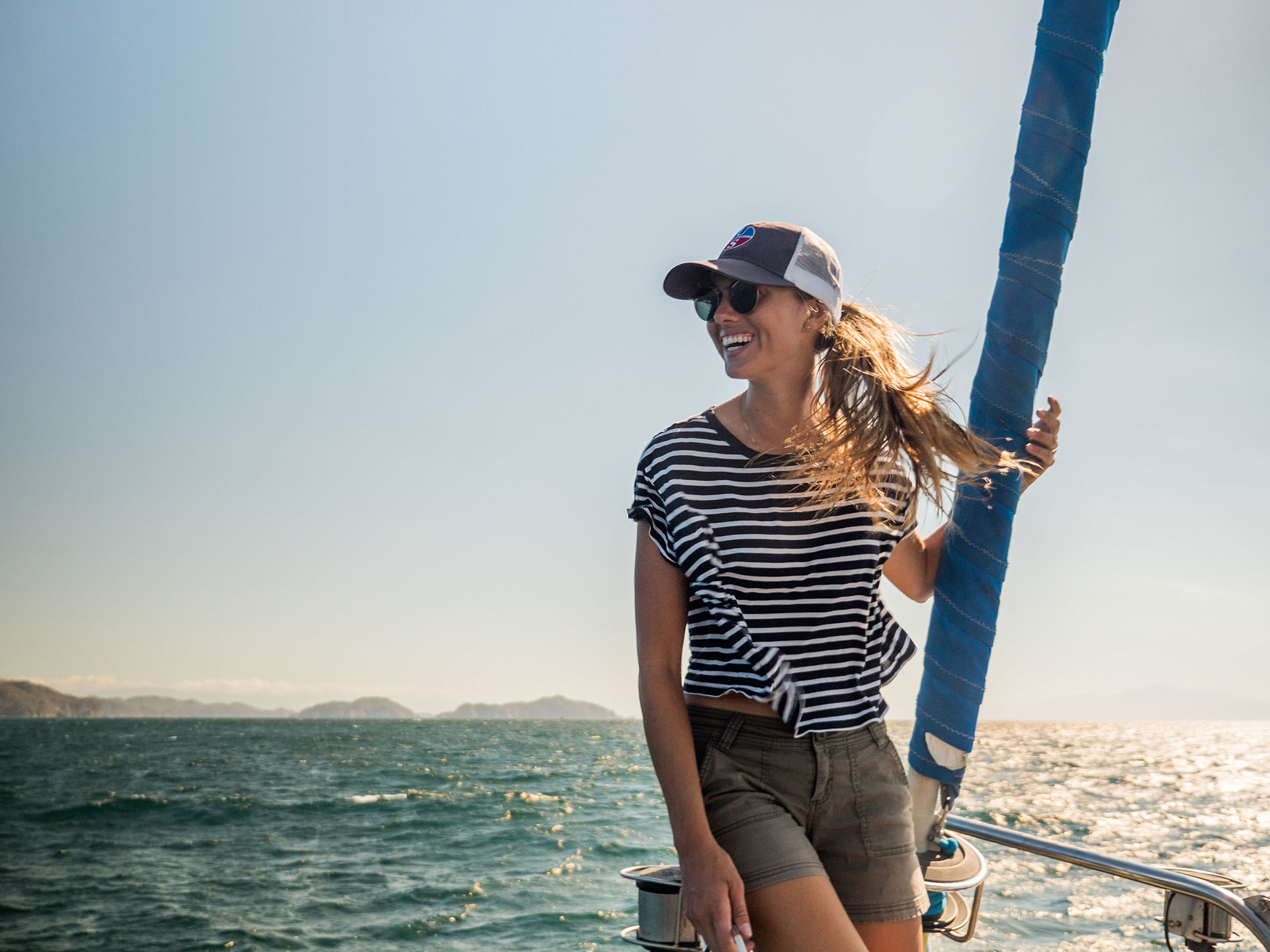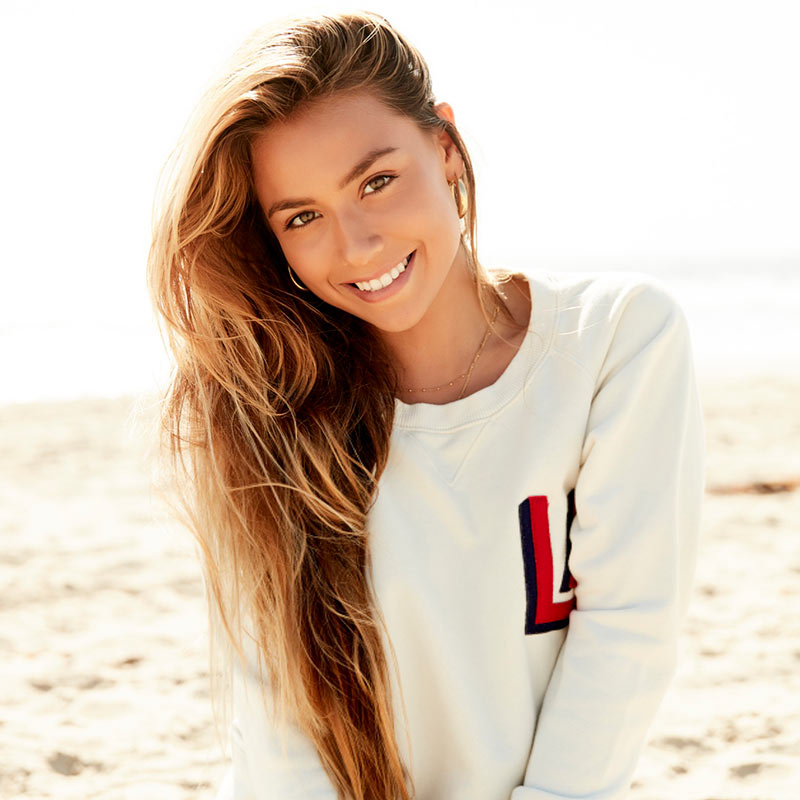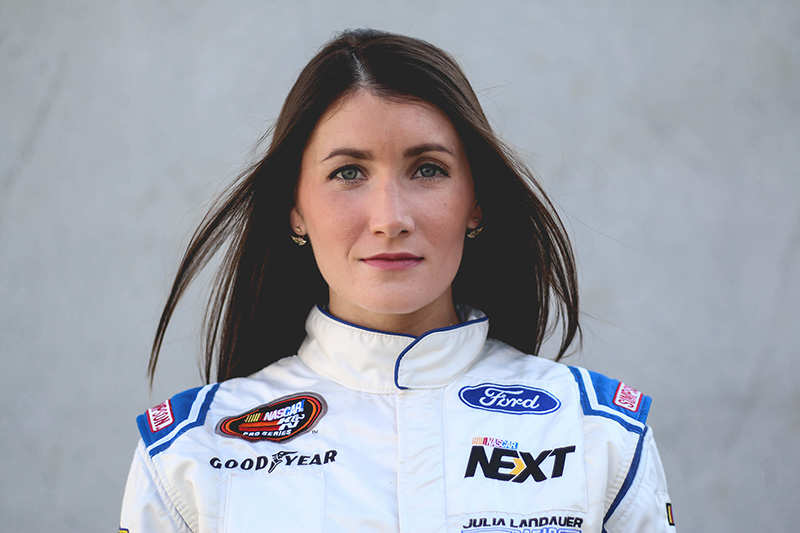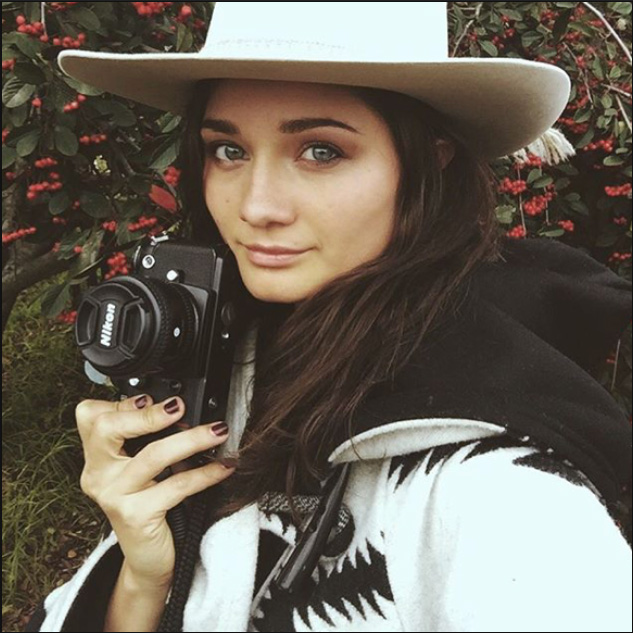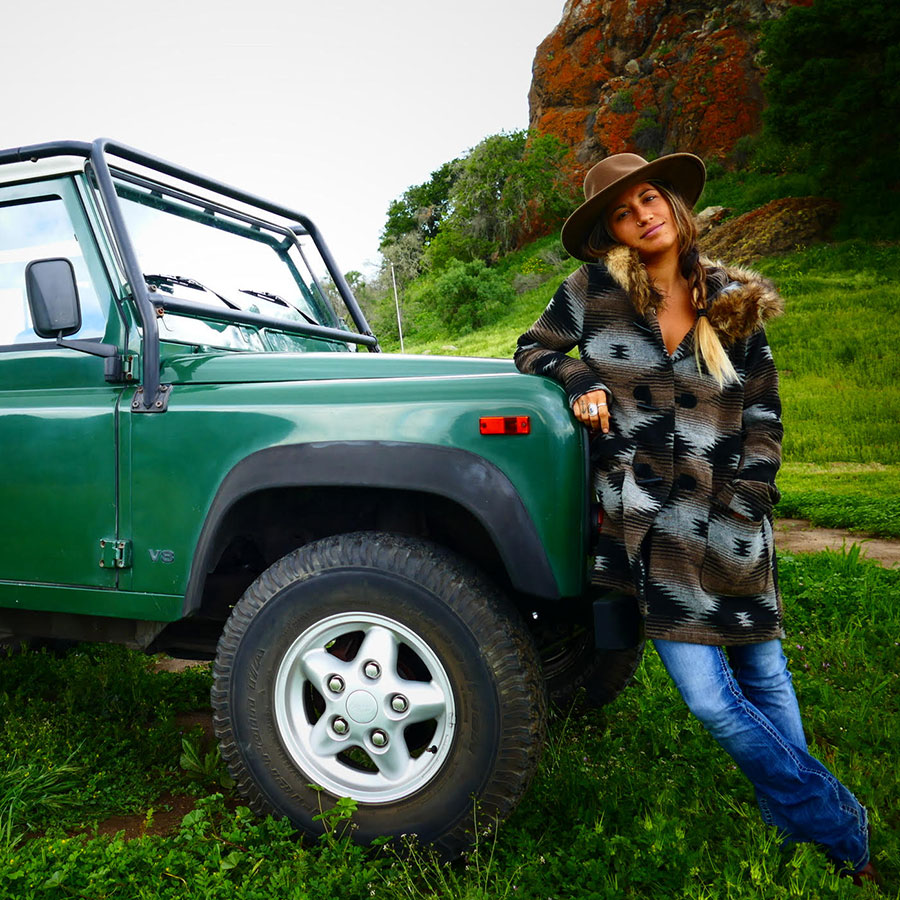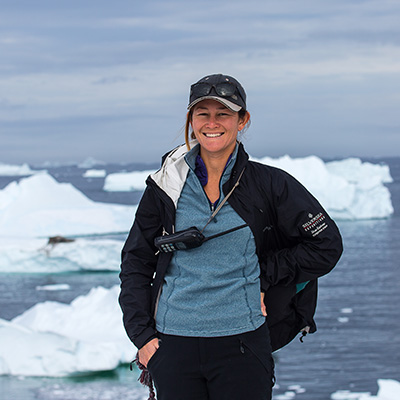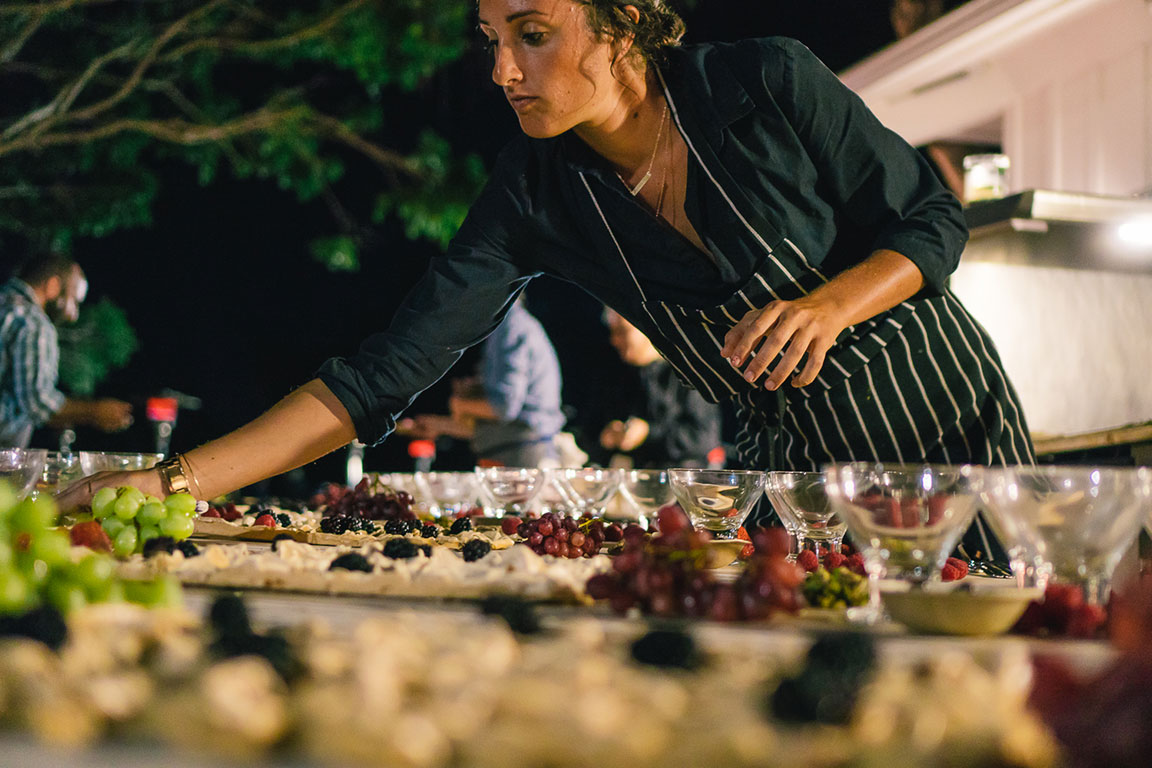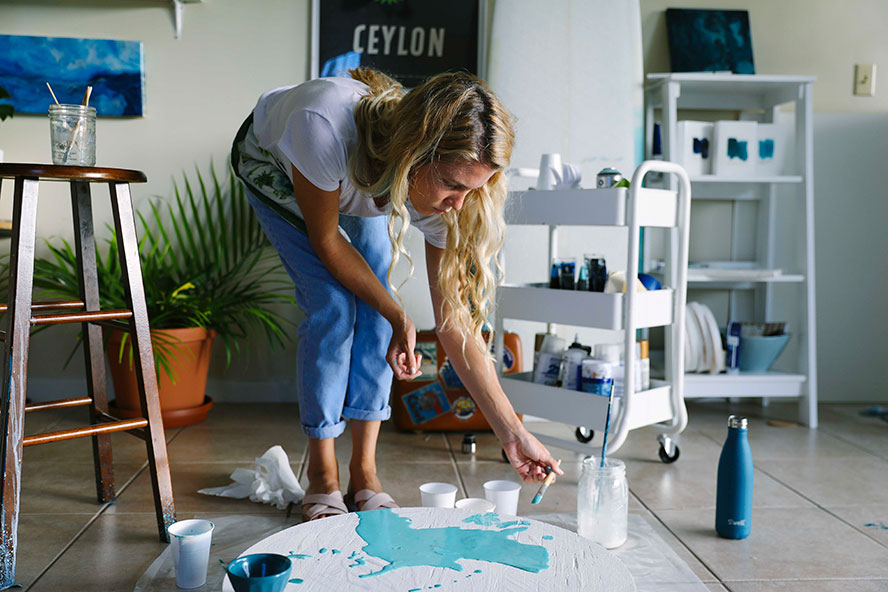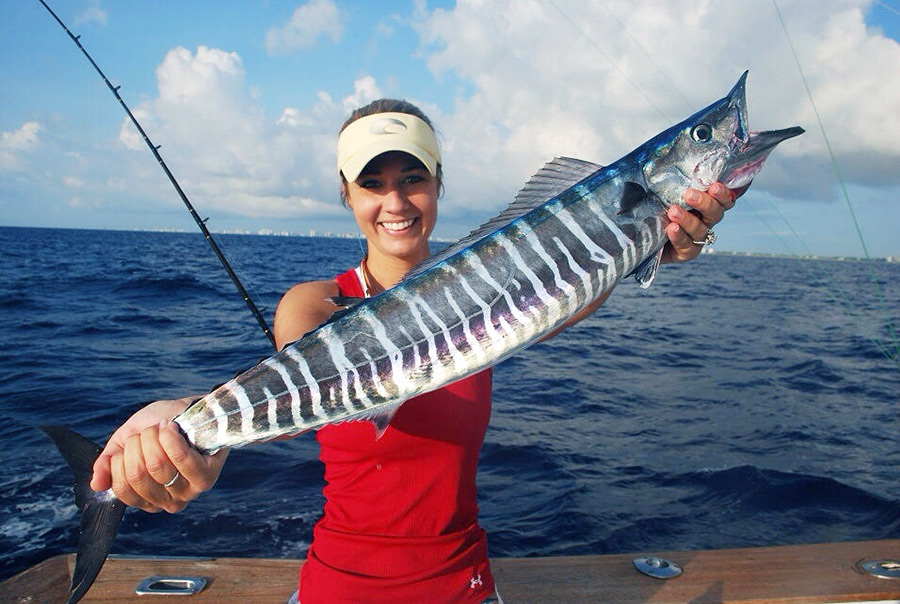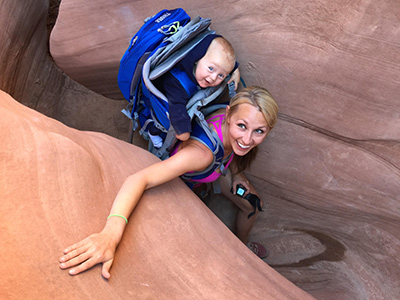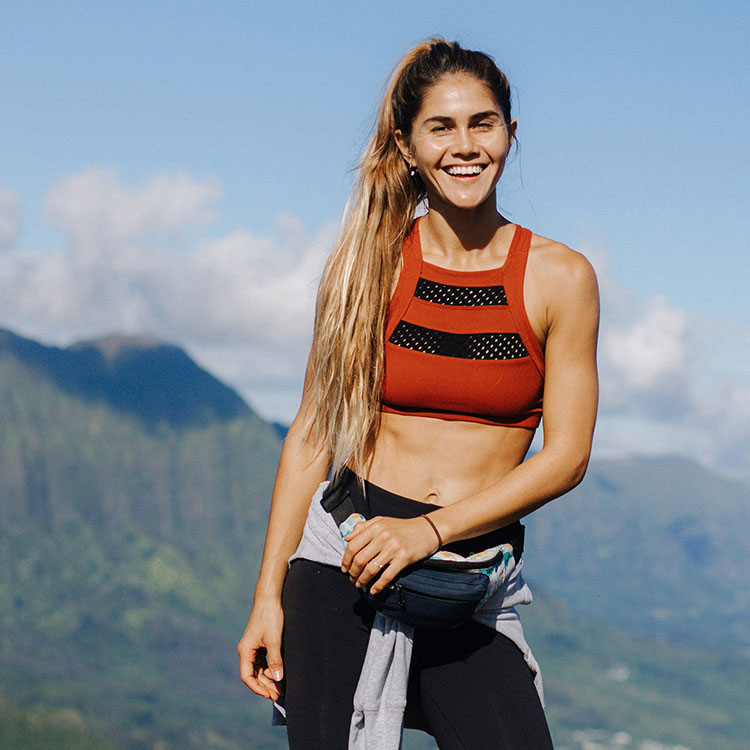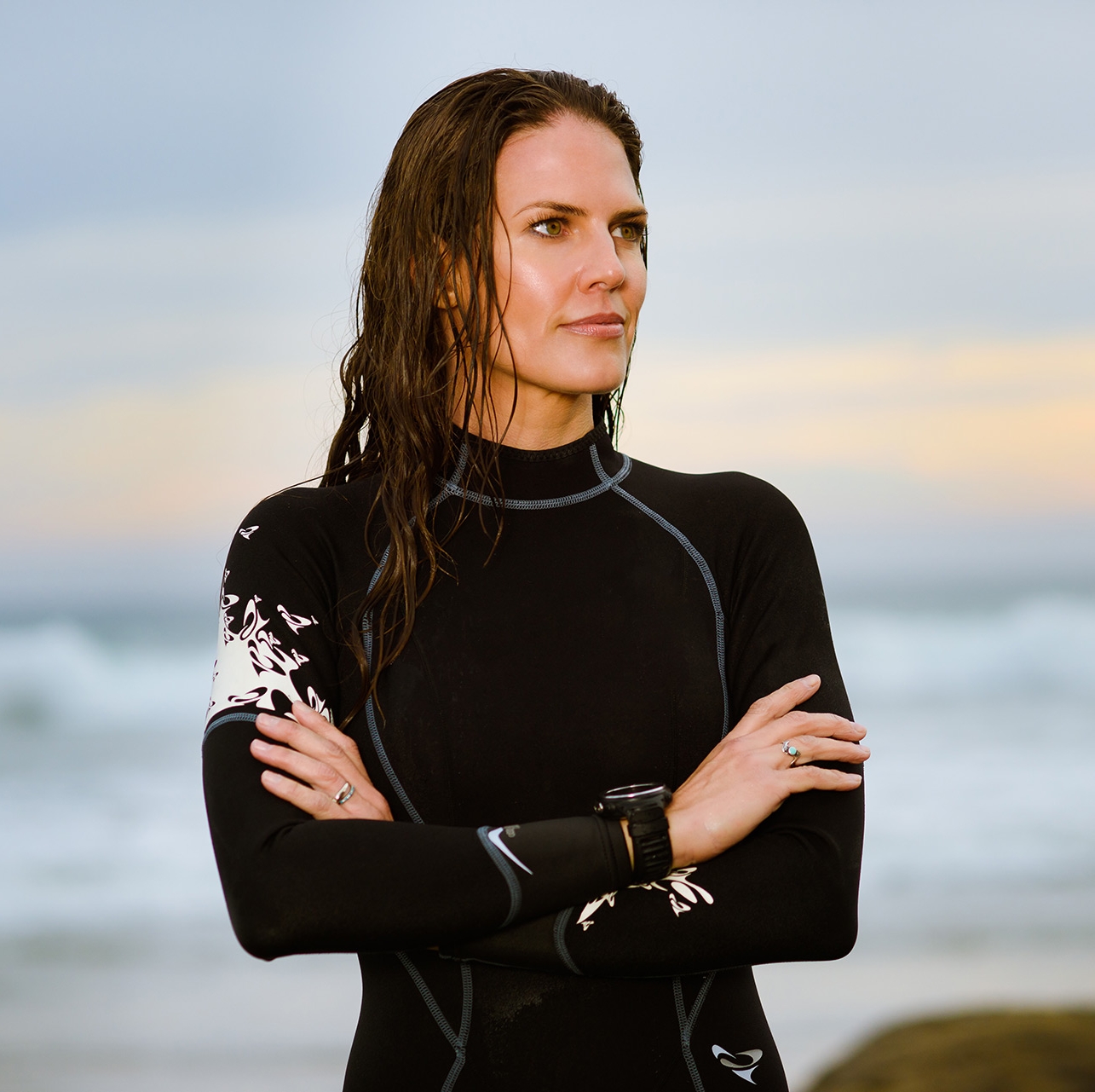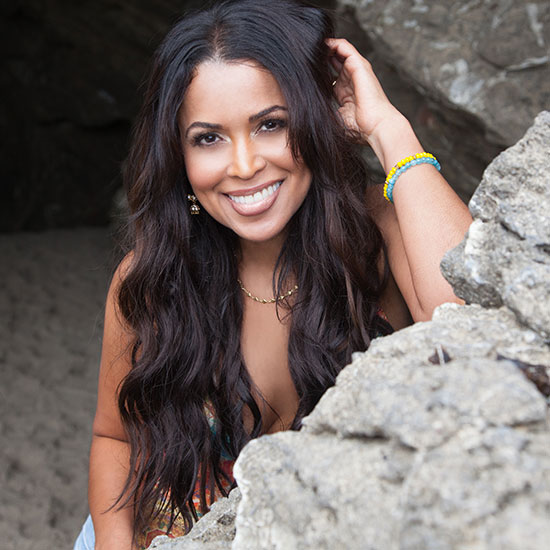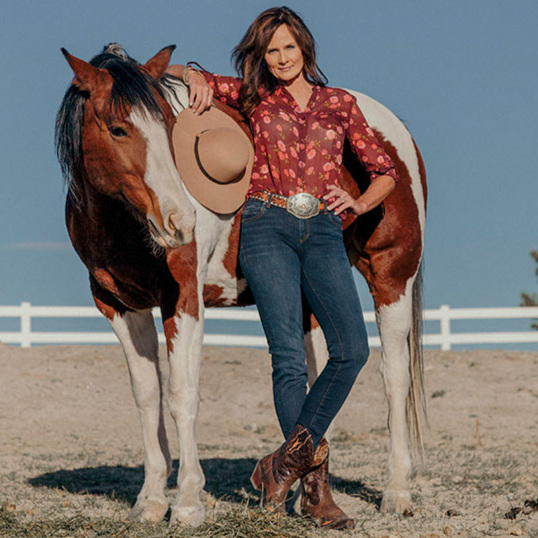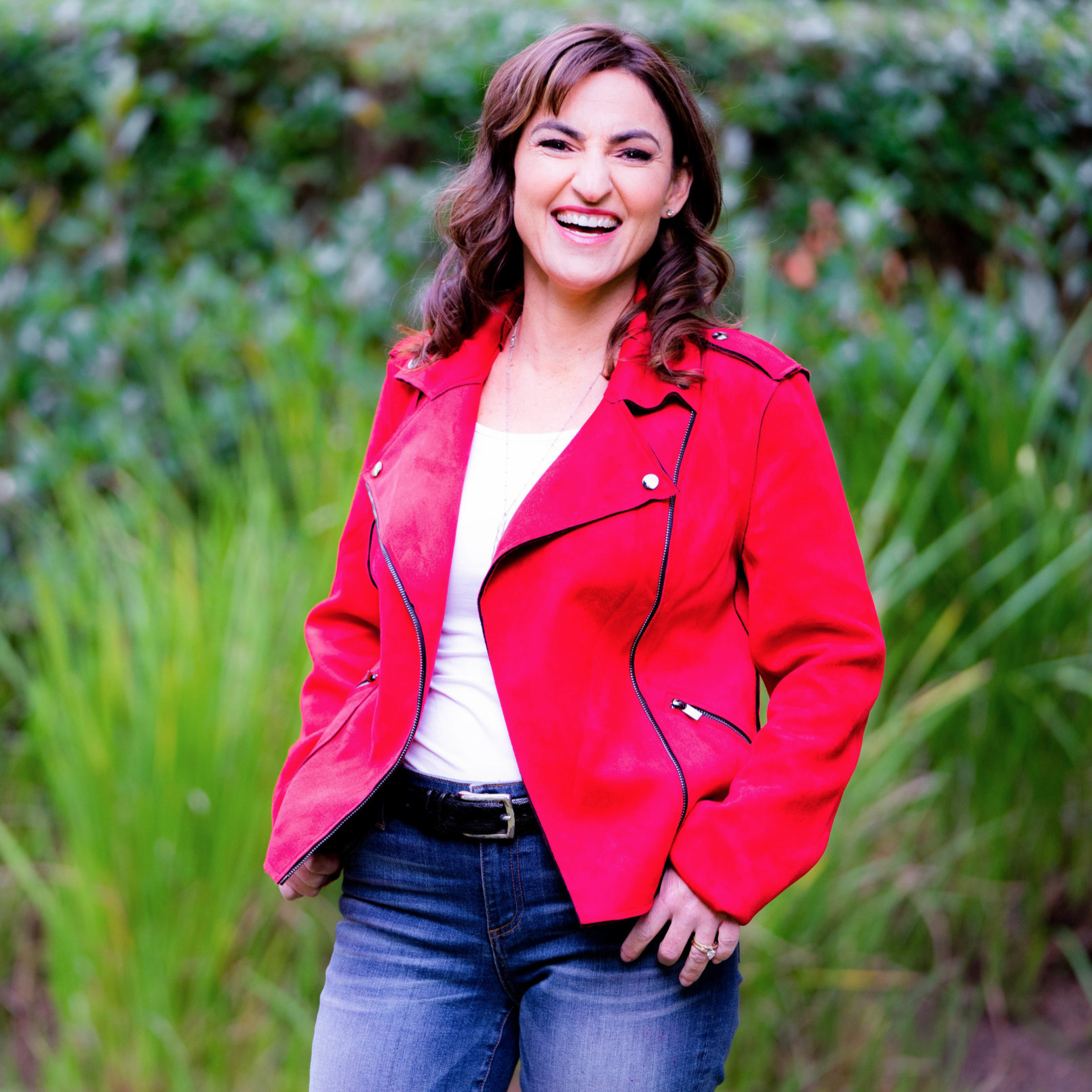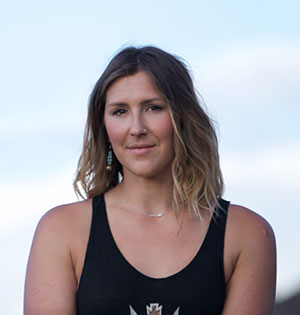CORY ANN HOM-WEAVER
WHALE TRACKER
MARINE BIOLOGIST CORY ANN HOM-WEAVER
IMAGINE A LIFE chasing inconsistent days, searching for financial backing for research projects in order to pay the bills, and following strange noises from deep below the ocean's surface, on a schedule not of your own but of the movements of some of the largest animals to have ever lived on this planet. For some, 12 hour shifts, months confined to tiny quarters, relying on grants and an income source based on relationships and connections within an extremely niche industry, may be too chaotic to bare. For Cory Ann Hom-Weaver, the rewards have been revealed. Through living this unconventional lifestyle, results have followed, in the pursuit of tracking whales and other marine life to conserve the oceans.
“I'm an adult that never lost my childhood sense of adventure. I am constantly trying to learn more, not only about the ocean, but also the different cultures in the world. One is impacted by the other.”
The last eight years have been spent, acclimating as a Marine Biologist specializing in Marine Mammal Acoustic research. This mean adjusting to months on ships followed by several more on land, in a laboratory listening to thousands of hours of recordings and analyzing the data from the work in the field. All in order to discover, protect and increase the understanding of marine mammals roaming freely in the open ocean.
Currently, the Marine Mammal Acoustic field is growing in diversity comparative to twenty years ago and despite the fact that this field remains small, it is an area of marine biology that has begun catching the interest of more women than men over the last few years, including this young women from Hawaii, Cory Ann. This was however more an alignment of chance and deep-rooted connection to the ocean than a pursuit of original passion.
Her love and interest for studying and working with animals dates back to early childhood, and to some surprise, began on land in the saddle riding horses. She spent her youth around these large mammals and became fascinated by them. But her love for the ocean was developed by spending countless hours on boats with her father, Mark Weaver, who was the owner and captain of a zodiac company that toured the NaPali coastline off Kauai.
This meant her childhood and adolescence was spent on and around boats developing her oneness with the ocean and a passion for conservation. There was no shortage of learning or discovery for Cory Ann and her younger brother, Wyatt. Their youth was filled with tough love that gently encouraged following ones' curiosity and pursuing passions, even if these were unveiled in a non-traditional way. From fixing her first truck, driving the tractor to mowing the lawn on their seven acre property, and helping fix the family boat, her father always challenged Cory Ann to figure things out on her own. If a question arose, rather than simply answering it, he challenged her to find a solution.
This independent approach balanced with an unending support and encouragement from her mother, Liz, empowered her to step outside of the standard social pressures placed on women and to do what she loved, on her own terms. Culminating in a lifetime of experiences dedicated to improving the world through scientific studies in a very short time.
Marine biology was not the original vision for how her connection to animals would pan out. The relationship she developed while riding and training horses in her youth lead her to the California for college, to study at Cal Poly San Luis Obispo and enter in their Animal Science program with a focus on Veterinary Sciences.
As her course load increased, the urge to reconnect with the ocean grew and Cory Ann found herself craving the blue aquamarine water from her childhood. The cold waters of Central California prevented her from her more traditional ocean pursuits, leaving her eager to find another connection to the watery world. This Hawaii native realized that in order to spend time in the cold waters of San Luis Obispo, she would need to take up a sport. Naturally she began spending a significant time surfing as a means to satiate these cravings. This allowed her to be closer to the ocean once again.
One afternoon while strolling the beach collecting kelp with her college boyfriend for his marine studies on urchin spawning, she was left inspired and with a sudden pique in interest to return to her roots and really reconnect with the ocean in a whole new way. Cory Ann's desire to continue pursuing a career in the veterinary field waned, but the shift was not immediate.
She continued to follow her undergraduate college coursework in veterinary studies while considerations of wildlife exotics filling her imagination. She was now considering working with elephants and other large terrestrial mammals. But the summer before her senior year, her professor, Matt Burd, presented her with a connection that would shape the rest of her life. That summer, she began an internship with Tom Norris of Bio Waves in San Diego, starting a position she had no relative experience in. It was her honesty and curiosity alone that convinced Tom that it was worth taking her under his wing, to learn the ins and outs of marine mammal acoustics. The years that followed ever since have been days filled with a nontraditional living, that to Cory Ann have become her norm.
She has joined a plethora of projects over the years taking her to places like the Kamchatka Peninsula in the Russian Far East, Palau in Philippine Sea, the sovereign state of Kiribati in the Pacific Ocean and Antarctica. Through these travels, she's become an intricate member in a close knit community of bio-acoustics researchers working in collaboration with organizations like the National Oceanic and Atmospheric Administration (NOAA). Working consecutive months on board various ships the scientists in this field have collectively contributed to the way we understand, interact and connect to the ocean and the species that call it home.
A project may last months on end, 24 hours a day, resulting in working 12 hour shifts and getting very little sleep. During these projects Cory Ann uses the vocalizations of marine mammals to localize and track their positions. Why? You may ask… to understand habitat uses and distribution of these mammals in order to promote their conservation.
Cory Ann has spent a lot of time tracking cetaceans for a living, the reasoning to the moniker, Whale Tracker. She, along with Whales Alive, a non-profit research organization, conducted the first ever acoustic survey off of the Republic of Palau. There, the team of researchers were able to discover new species that had not yet been described in those waters. They also provided the local government with a management plan for future development of mammal ecotourism and conservation.
She also spent three winters aboard a NOAA research vessel in the Pacific Northwest tracking the critically endangered Southern Resident Killer whales. The purpose of this study, which was lead by Dr Brad Hanson and Dr Marla Holt, was to determine the winter habitat usage of this population of orca.
The Southern Resident Killer Whales are made up of three pods: J, K and L. These are some of the most endangered animals on the planet as there are only 76 individuals left and they only breed within the small population. Although there are many reasons for their decline, about 30% of the population was removed from due to live Orca captures back in the 70s and 80s when marine parks such as Sea World first opened.
The purpose for the study was to declare critical winter habitat for these animals and to limit the anthropogenic impacts on this already fragile population. And it is just one example of how her studies support changes in our environment.
More recently, Cory Ann joined a unique project with colleague, Olive Andrews, from Conservation International aboard a recreational cruise ship. The researchers stuck to the itinerary of the passengers while tracking cetaceans in the remote South Pacific. Specifically, they were interested in finding sperm whales around Kiribati, as the region was historically a hotspot for American whaling vessels and thousands of animals were taken from the sea. Because research is often costly and relies on securing proper funding, part of the mission of this project was to determine if it was possible to have researchers aboard a working and operational cruise ship without affecting the itinerary of paying passengers.
The researchers were provided free births and also provide valuable information to the paying passengers. The value of bio-acoustics was highlighted during this project when sperm whales were heard and identified by their unique vocalizations, whereas visual observations did not yield any results.
Perhaps the sperm whales have learned to avoid vessels in this area due to the history of whaling? To some it may seem futile to record and digest the fluctuations and patterns of whale vocalizations, but their dedicated work has changed the way humans engage with endangered species in the wild. As with any job it has shifted her way of living, growing, and developed a sense of pride and respect for these creatures. It has allowed for educating and promoting knowledge and understanding amongst some of the remotest cultures around the world. She is connected to the ocean and all of its living creatures.
"The ocean has been the only constant in my life. I have moved to different places, I've traveled all over the world, and it's always there. And for me to be in the water, snorkeling, diving, or surfing it's very grounding. It keeps me present. I couldn't live without the ocean. It helps me stay happy and healthy. It keeps me humble."
Just like the ocean, Cory Ann has few boundaries. Her past experiences have sparked a passion to pursue challenges that some may shy away from. Studying the resident Orca populations in the waters of Siberia and the other mammals that call this area home is nothing short of a dream project. Currently, this area has limited resources and funding to support research, and for that reason this particular project has struck a chord to learn more about a virtually unstudied population is really a dream come true. Her fascination lies in the Orca population as a whole, but specifically, in learning more about remote populations that have yet to be studied in order to gain a better understanding of their density and social structure in an area currently still supporting live capturing (for sale to the worlds "amusement parks').
Cory Ann believes that we are all interconnected and that everything is impacted by the other. Her mission is to find ways to conserve species while preserving the economies of different cultures. This, she believes can only come with increased education and understanding of how people interact with their environments.
By helping local communities to see the value in their resources is one way she feels that we can inspire change. Allowing this 'whale tracker' to hunt for new avenues to connect the dots, one project and population at a time.
"From what I've learned while traveling is that it doesn't matter what culture you're in or where you're from, we all have similar desires and similar problems. We live in very different places and very different environments, but yet fundamentally, I feel like people all connect on a certain level and it's really inspiring."
BY EUNIQUE DEEANN









